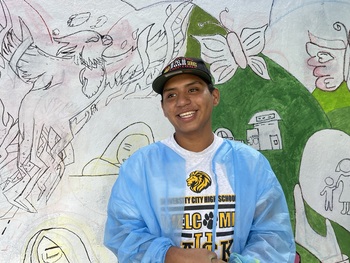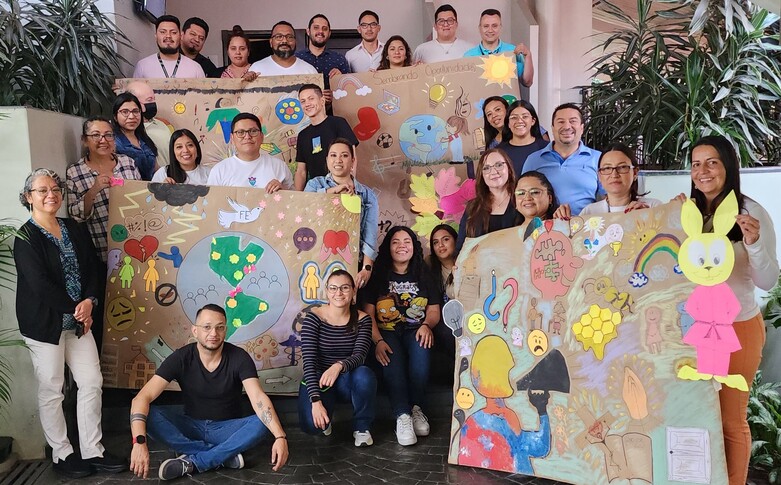SICA: Promoting youth employment and resilience in Central America
Promotion of Youth Employment and Resilience in Central America (CaPAZ II)
-
Commissioning Party
German Federal Ministry for Economic Cooperation and Development (BMZ)
-
Country
Central American Integration System (SICA), Guatemala, Honduras, El Salvador
-
Lead executing agency
More
-
Overall term
2023 to 2026
-
Other Stakeholders
Ministries for social affairs, labour and education as well as national vocational training institutions, civil society organisations, private companies and business organisations, regional partners such as the Secretariat for Social Integration in Central America and other secretariats and councils of ministers of the SICA
-
Products and expertise
Social development

Context
Two out of three people in Guatemala, Honduras and El Salvador are under 30 years old. They are often affected by social exclusion and violence, with murder being the most common cause of death for ten to 19-year-olds.
Social inequality and discrimination prevent access to vocational training and education, as well as to the labour market. Young people also experience multiple discrimination if they are women, belong to the LGBTIQ community or live with a disability. The situation is particularly problematic for young people in prison, especially men. Youth unemployment and a lack of opportunities pave the way for migration or recruitment by youth gangs.
Objective
Young people from neighbourhoods with high levels of violence have strengthened their psychosocial resilience and employability and have been able to develop skills that offer them alternatives to violence and irregular migration.

Approach
The project is working in four fields of activity:
- Employees of local and national organisations as well as youth peer educators receive training to promote the psychosocial resilience of young people.
- In particularly dangerous neighbourhoods, it is expanding non-formal vocational training opportunities for young people facing multiple discrimination.
- Companies that offer green or digital jobs are supported in developing successful practices so that young people can find a job.
- The project implements a youth-rights approach and assesses how youth participation can be integrated in development cooperation. Implementation is supported by a youth advisory board.
The political partner is the General Secretariat of the Central American Integration System (SG-SICA), the implementing regional partner is the Secretariat for Social Integration of Central America (SISCA). The project promotes joint learning between neighbouring countries in Central America and advises regional actors in the Central American Integration System.
Last update: December 2023






